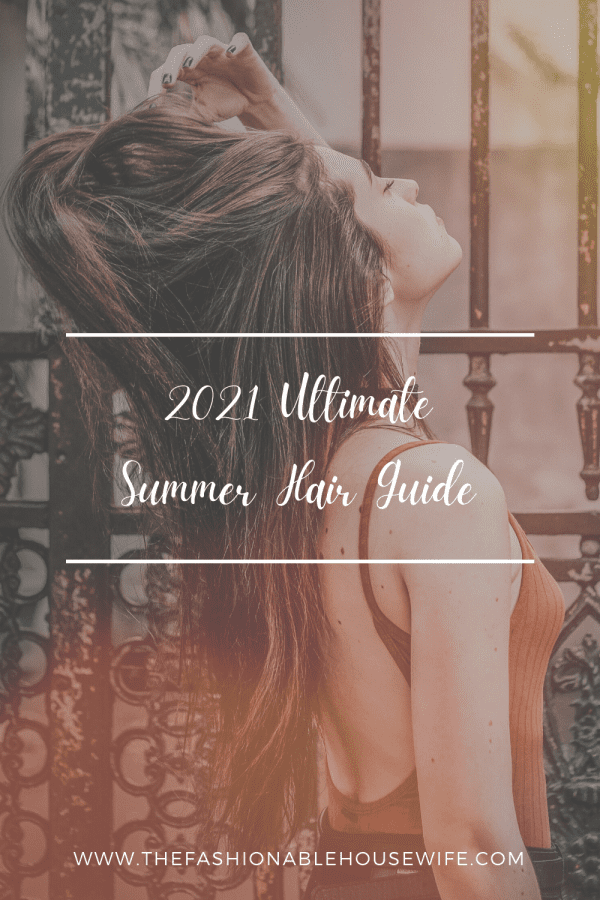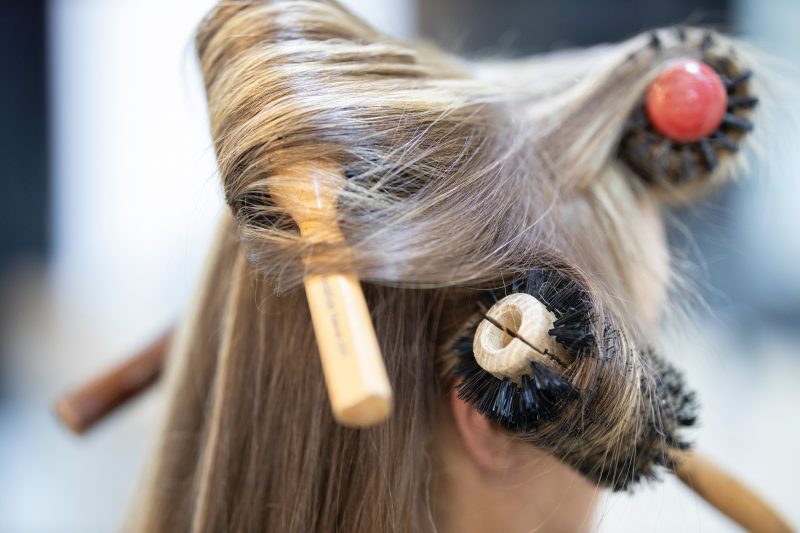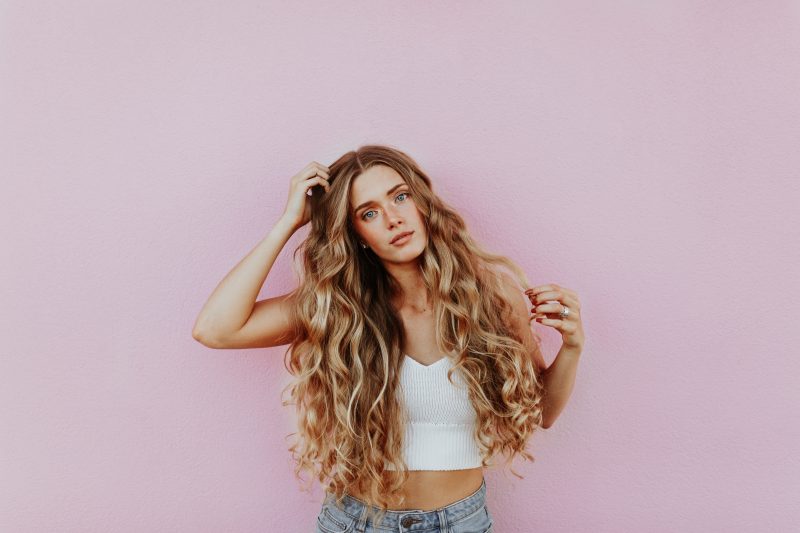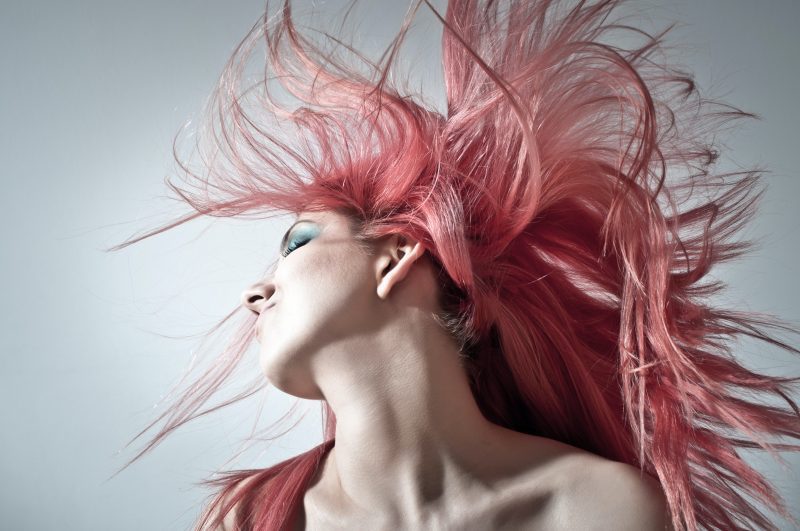
Just as you protect your skin from radiation, you need to do the same with your hair. In the summer months, it is important to avoid the possibility of damage.
If you want avoid damage to your hair, it is important to adhere to the advice in our Summer Hair Guide for maintaining healthy hair during the summer.
During the hot months, while spending time in the salty sea or in the swimming pool with chlorine, you should not use styling products that are not designed for this or have not been specially adapted to your hair. Not many people realize that the summer sun can greatly damage your hair.
Here are some top tips to keep your hair happy all season.

Top Tips for 2021!
- Just as you protect your skin from radiation, so do with your hair. In the summer months it is important to avoid the possibility of damage. The professional hair care brand L’Oreal Professional shares tips and advice for maintaining healthy hair during the summer season.
- During the summer months, while spending time in the salty sea or in the pool with the chlorine, do not use styling products that are not designed for this or have been specially adapted to your hair.
- Pool water with chlorine – The chlorine in pool water is mainly harmful to hair dyes, skin membranes and protein. With prolonged exposure of the hair, chlorine is able to change color and shades.
- It is recommended to wear a hat or bandana when outdoors and especially in the pool or at the beach, and apply a water-resistant sunscreen to the hair that will help create a durable protective layer for several hours. You can of course repeat the operation as needed during the stay. Just as you take care of your facial skin, you must take care of your hair.
- Also, when returning home, it is important to thoroughly cleanse the hair and skin from remnants of salt or chlorine water that have accumulated in the hair by using a shampoo and of course a nourishing mask that are tailored to the type of hair and its texture.
- Hair care – In the case of extra long hair that boasts full color or with shades it is very important to make sure to use dedicated products that will prevent immediate damage or fading in color.
- Do not use rubber bands that are not designed and are not resistant to hair collection for fear that they will melt from the heat on the hair.
- It is advisable to avoid as much as possible the use of accessories and / or hair ornaments such as bows, etc. and also to avoid collecting the hair by clips that are usually over-tightened.
- Before using heat products (face, hair irons, etc.) professional care and styling products should be used that are designed to protect the hair from heat and maintain the durability of the face over time.
- To prevent dry ends, it is advisable to use a mask for dry to very dry hair. The mask nourishes the hair both in the outer layers and in the inner layers and thus restores its natural shine and softness.
- For hair with extensions, it is recommended to use a light mask so as not to weigh down on the sweaty scalp skin.
- For curly hair, moist sun, salt water and sand are not recommended and can cause hair knots and damage to curls and their definition. It is recommended to apply a moisturizer or mask before the exposure that will nourish the hair.

Do I need extensions for summer?
Extensions can give length or volume and can look great. However, you need to choose the best stylist. A professional hair stylist will keep only natural hair in their salon, and if they have synthetic hair (artificial, unnatural) it will be for the purpose of temporary extensions only. There are two types of natural hair, the first type is quality natural hair and the second type is low quality natural hair. Synthetic hair is not high quality hair at all and is not suitable for use with regular hair extensions. Natural hair is pre-derived hair from someone else. High-quality natural hair and low-quality natural hair meet the same definition.
The two parameters for quality hair extensions are appearance and touch. Poor quality hair extensions look dry, burnt, their touch is very unpleasant (especially in synthetic extensions) and very dry. Quality hair extensions are the opposite. Another way to identify quality hair extensions is to ask where they are importing the extensions from. High quality extensions will be imported from countries where the climate is very comfortable and will not greatly affect hair – such as hot countries.

How to choose a new color?
There are plenty of colors available today and different styles, such as highlights, lowlights and balayage. If you want to learn how to balayage, it doesn’t have to be difficult. Therefore, it is first important to determine the shades that will suit your face the most. Hair color can make all the difference when it comes to our appearance. It can emphasize all the beautiful things in us, and on the other hand can also highlight aspects that we would rather hide. Choosing the right hair color is not always easy, also because our desire does not always reflect what suits us in reality. What hair color will suit you? Let’s pick out some tips that will give you the confidence to make a change!
- Do not choose a color that is more than two degrees light or darker than the color of your original color.
- Never rely on the look of the model appearing on the paint box. The appearance of the models can sometimes be very misleading and make us choose a color that does not suit us. Always rely only on the hair samples that can be seen in the store, which show what real hair dyed looks like. Of course, also pay attention to the description of the color that appears on the package (black, blue, honey blonde, chocolate brown, etc.).
- Match the hair color to the color of your skin and eyes. Warm colors can suit those whose skin color is olive, golden or dark or those who have brown, dark eyes. Cooler colors can suit those who have light eyes (blue, gray, green, etc.). Once you know whether to give hot or cold types – it will be easier to match the right hair color for you.
- If you have a dark, tanned skin tone, a hair color with golden, caramel or bronze shades, in a darker shade than their skin, will suit you well!
- If you have a light-cold skin tone, the colors that will not suit you are auburn, copper and gold of all kinds. These colors will only emphasize the color of your light skin and will also emphasize redness in your facial skin. Brown colors or a bright blonde color can suit you.
- If you had fair hair as a child, it is likely that these colors will suit you as an adult, even if over the years her hair color has become dark. So if you are worried about returning to an old shade, don’t get too concerned!
- If you have green or brown eyes, a dark color will always suit you better than blonde. If you want to choose a platinum shade, remember that it will suit you better if you are an editor in a pinkish shade and less if you are in a dark shade, of olive for example.



